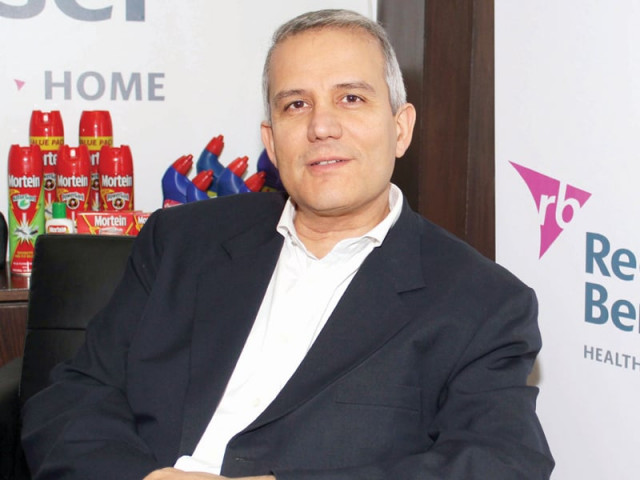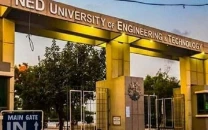Broadening its presence: Reckitt Benckiser may invest up to $15m in Pakistan
Company executive says another factory to be set up in Karachi.

Company executive says another factory to be set up in Karachi.
Reckitt Benckiser (RB) Pakistan will invest between $5 million to $15 million within the next three years in the country, Salvatore Caizzone, executive vice president of Reckitt Benckiser Russia, Middle East and Africa region told The Express Tribune.
Talking to this reporter during an interview on Tuesday, Caizzone said RB Pakistan is going to set up a new factory in Karachi, regardless of the persistent energy crisis in the country. “Decisions like these are not taken for the short term. We’re investing heavily in Pakistan because we have a positive outlook on this country,” he said.
Refusing to reveal the revenue figures or the profit margins of RB Pakistan, Caizzone said that emerging markets contribute 42% to RB’s net revenue globally: their share is expected to increase to up to 50% by 2016. “Without stating the actual statistics, all I can say is that, for us, Pakistan is one of the top 10 markets in the emerging economies,” he said.
RB Pakistan has introduced 12 brands in Pakistan, in the categories of healthcare, hygiene and homecare. Its most recognisable products include Strepsils throat lozenges, Disprin painkillers, Dettol disinfectants, Mortein insecticides, Harpic household cleaners and Cherry Blossom polishes.

“Although we don’t reveal our actual growth numbers, we have been growing at the higher end of double digits in Pakistan. I know that some of my competitors will be very happy to grow at 7-8%, but we’d be extremely unhappy if this happens to us,” he said. He persistently refused to state the actual growth rate of RB Pakistan.
However, we found out through our sources that the combined annual growth rate of RB Pakistan for the last three years has been 16.8%. Its total revenues increased from Rs4.5 billion in 2009 to Rs7.2 billion in 2012, our sources said.
Caizzone says brands falling in the healthcare segment are the top priority for RB, followed by hygiene and homecare brands. The largest chunk of growth in Pakistan has come from the hygiene segment, he noted; in comparison, the company’s growth at the global level is divided equally between healthcare and hygiene segments. “We have a very large business of hygiene brands in Pakistan, which is driven particularly by Dettol, Harpic and Mortein. But we have very few brands in the homecare segment,” he remarked.

Although RB Pakistan has existed in the country since 1951 (it was known as Reckitt and Coleman up until 2000), Caizzone says the company is still in the investment phase. “We don’t manage brands to be cash cows. We manage brands for growth. A cash-cow’s primary role is to generate bottom line, but our financial strategy is growth-oriented,” he said. He reiterated that volumetric growth and consumer penetration are more important for RB Pakistan than profit margins for now.
The company exports made-in-Pakistan products to the Middle East, Philippines, Thailand, Malaysia, sub-Saharan Africa, South Africa, Europe, Australia and Latin America. According to Caizzone, about one-sixth of the goods manufactured in the company’s Mauripur factory, located in Karachi, are exported every year.
“I feel really happy that Pakistan-made products, coming out of Mauripur, are sold in Australia, European Union, Middle East and South America,” he says.
As for challenges, Caizzone says the deteriorating law and order situation is the single most important issue that the fast-moving consumer goods giant faces in Pakistan. “We have salespeople, who move around frequently to take orders,” he said. “I’d like Pakistan to be a place where it’s [just as] easy for trucks to move from one place to another.”
Additionally, he says, clarity in the decision-making process at the top level of the country’s leadership will also help private businesses prosper in Pakistan.
Asked what he thinks about the energy crisis, he retorts: “For the time being, I’d say that the issue of law and order is far more pressing than energy shortages. After all, the energy crisis doesn’t stop me from coming to Pakistan,” he adds.
Published in The Express Tribune, January 23rd, 2013.
Like Business on Facebook to stay informed and join in the conversation.



















COMMENTS
Comments are moderated and generally will be posted if they are on-topic and not abusive.
For more information, please see our Comments FAQ